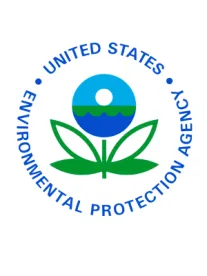US EPA announced on April 24, 2018 that EPA Administrator, Scott Pruitt, had signed a proposed rule to strengthen the science used in regulations issued by US EPA. The proposed rule, “Strengthening Transparency in Regulatory Science,” was published on April 30, 2018 and would require that – where scientific studies are pivotal to US EPA’s regulatory action – “the data underlying those [studies] are publicly available in a manner sufficient for independent validation.” Administrator Pruitt described the rule as an end to “the era of secret science.” US EPA solicited comments regarding the rule, how it can best be promulgated and implemented, and its effects on existing US EPA programs.
Critics argue that the requirement to use only studies with publicly available data could eliminate research where intellectual property or privacy concerns require withholding such data. In an open letter to US EPA, the editors of five scientific publications noted that many peer reviewed journals support data sharing but recognize the need for different levels of stringency in privacy protections. “[I]n not every case can all data be fully shared. Exceptional circumstances, where data cannot be shared openly with all, include data sets featuring personal identifiers.” Other critics note that the public health studies often relied on by US EPA cannot be replicated for “independent validation” because replication would involve exposing the public to the hazardous or toxic substances being studied. Thus, the proposed rule would unreasonably limit the US EPA’s use of important research.
In some of the first formal responses to US EPA’s controversial proposed rule, multiple organizations requested that US EPA extend the rule’s 30-day comment period. Critics of the rule and the comment period argued that the 30-day period is unusually short, especially given the potential impacts of the changes proposed by US EPA. Multiple commenters also requested that US EPA hold a public hearing regarding the proposed rule.
The Environmental Law and Policy Center requested a 60-day extension, explaining:
We cannot overstate the danger that this proposed rule poses to Americans . . . . Limiting the science used in major regulatory decisions thoroughly undermines EPA’s ability to understand and manage contaminants in the air, water, and land and limit human exposure to harmful chemicals. The seriousness and breadth of adverse outcomes from this proposed rule warrant extensive analysis.
A group of nearly 300 public health scientists and professionals similarly requested a 60-day extension, noting that “EPA appears to recognize the significance of the proposed rule, because the agency has requested comment on a wide array of complex scientific, legal and administrative issues . . . [that] cannot be addressed adequately in the 30 days the agency has provided for public comment.”
Other organizations, like the Idaho Conservation League, argued that the 30-day comment period does not satisfy legal requirements and, under Executive Order 13,563, a meaningful comment period “should generally be at least 60 days.” Multiple other groups including the Sierra Club and Natural Resource Defense Council submitted similar requests.
Comments are currently due on or before May 30, 2018.



 />i
/>i

